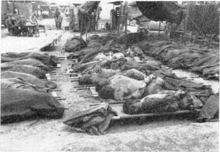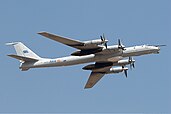Portal:History
The History Portal

History by Frederick Dielman
History (derived from Ancient Greek ἱστορία (historía) 'inquiry; knowledge acquired by investigation') is the systematic study and documentation of the human past.
The period of events before the invention of writing systems is considered prehistory. "History" is an umbrella term comprising past events as well as the memory, discovery, collection, organization, presentation, and interpretation of these events. Historians seek knowledge of the past using historical sources such as written documents, oral accounts, art and material artifacts, and ecological markers. History is incomplete and still has debatable mysteries.
History is an academic discipline which uses a narrative to describe, examine, question, and analyze past events, and investigate their patterns of cause and effect. Historians debate which narrative best explains an event, as well as the significance of different causes and effects. Historians debate the nature of history as an end in itself, and its usefulness in giving perspective on the problems of the present.
Stories common to a particular culture, but not supported by external sources (such as the tales surrounding King Arthur), are usually classified as cultural heritage or legends. History differs from myth in that it is supported by verifiable evidence. However, ancient cultural influences have helped create variant interpretations of the nature of history, which have evolved over the centuries and continue to change today. The modern study of history is wide-ranging, and includes the study of specific regions and certain topical or thematic elements of historical investigation. History is taught as a part of primary and secondary education, and the academic study of history is a major discipline in universities.
Herodotus, a 5th-century BC Greek historian, is often considered the "father of history", as one of the first historians in the Western tradition, though he has been criticized as the "father of lies". Along with his contemporary Thucydides, he helped form the foundations for the modern study of past events and societies. Their works continue to be read today, and the gap between the culture-focused Herodotus and the military-focused Thucydides remains a point of contention or approach in modern historical writing. In East Asia, a state chronicle, the Spring and Autumn Annals, was reputed to date from as early as 722 BC, though only 2nd-century BC texts have survived. (Full article...)
Featured picture
Did you know (auto generated)

- ... that the legal battle over awarding channel 9 in Orlando, Florida, the longest case in FCC history at the time, filled 55 volumes?
- ... that alongside a 7th-century BC Phoenician shipwreck, two additional wrecks from various historical periods were unearthed in Bajo de la Campana, situated off the coast of Cartagena, Spain?
- ... that local regulation and law enforcement in Brighton's early history was carried out by the Society of Twelve, a beadle "in cocked hat and full regalia", and two "Old Charlies"?
- ... that some have considered the Holocaust a unique event, external to history and beyond human understanding?
- ... that Timo Meier became the first player in San Jose Sharks franchise history to score five goals in one game when he was 25?
- ... that 25 Water Street was designed to blend in with historic brick buildings that no longer exist?
Sidney Charles Bartholemew "Ben" Gascoigne AO (11 November 1915 – 25 March 2010) was a New Zealand-born optical astronomer and expert in photometry who played a leading role in the design and commissioning of Australia's largest optical telescope, the Anglo-Australian Telescope, which for a time was one of the world's most important astronomical facilities. Born in Napier, New Zealand, Gascoigne trained in Auckland and at the University of Bristol, before moving to Australia during World War II to work at the Commonwealth Solar Observatory at Mount Stromlo in Canberra. He became skillful in the design and manufacture of optical devices such as telescope elements.
Following the war, Gascoigne and astronomer Gerald Kron used newly modernised telescopes at Mount Stromlo to determine that the distance between our galaxy and the Magellanic Cloud dwarf galaxies had been underestimated by a factor of two. Because this measurement was used to calibrate other distances in astronomy, the result effectively doubled the estimated size of the universe. They also found that star formation in the Magellanic Clouds had occurred more recently than in the Milky Way; this overturned the prevailing view that both had evolved in parallel. A major figure at Mount Stromlo Observatory, Gascoigne helped it develop from a solar observatory to a centre of stellar and galactic research, and was instrumental in the creation of its field observatory in northern New South Wales, Siding Spring Observatory. When the British and Australian governments agreed to jointly build the Anglo-Australian Telescope at Siding Spring, Gascoigne was involved from its initial conception and throughout its lengthy commissioning, taking its first photograph. Gascoigne was made an Officer of the Order of Australia for his contributions to astronomy and to the Anglo-Australian Telescope. (Full article...)On this day
May 2: National Day of Prayer in the United States (2024); Flag Day in Poland
- 1559 – Presbyterian clergyman John Knox returned from exile to lead the Scottish Reformation.
- 1889 – The Treaty of Wuchale was signed, ending the Italo-Ethiopian War, but differences in translation later led to another war.
- 1964 – Vietnam War: An explosion caused by Viet Cong commandos led USNS Card to sink in the port of Saigon.
- 1999 – Mireya Moscoso (pictured) became the first woman to be elected President of Panama.
- 2014 – Two mudslides in Badakhshan Province, Afghanistan, killed at least 350 people.
- Marutha of Tikrit (d. 649)
- Mary Moser (d. 1819)
- Giacomo Meyerbeer (d. 1864)
- Engelbert Humperdinck (b. 1936)
Selected quote
Victorious warriors win first and then go to war, while defeated warriors go to war first and then seek to win.
— Sun Tzu, Ancient Chinese military strategist
Related portals
More Did you know...
- ... that the Soviet Tupolev Tu-142 (pictured) maritime patrol aircraft was developed in response to the American UGM-27 Polaris submarine-launched ballistic missile?
- ... that Harry Powers said that watching his victims die was more fun than a brothel?
- ... that the effort put forth by the subject of Miró's 1937 Naked woman climbing a staircase and her heavy limbs are thought to reflect the tragedy of the Spanish Civil War?
- ... that 49% of German military losses happened in the last 10 months of the Second World War in Europe?
- ... that Thomas Edison lost a fortune in his ore-milling company, but "had a hell of a good time spending it"?
- ... that American McCaull Comic Opera Company actress May Yohé, once the owner of the Hope Diamond, died poor?
- ... that Egyptian political cartoonist Ahmad Nady took part in the 2011 Egyptian revolution, drawing cartoons while he demonstrated?
- ... that finds unearthed at the Israelite Tower in Jerusalem's Jewish Quarter attest to the Babylonian sack of the city in 586 BCE?
Topics
Categories

History • By period • By region • By topic • By ethnic group • Historiography • Archaeology • Books • Maps • Images • Magazines • Organizations • Fictional • Museums • Pseudohistory • Stubs • Timelines • Chronology • People • Wikipedia historians
WikiProjects
![]() WikiProject History •
Ancient Near East • Australian History • Classical Greece and Rome • Dacia • Former countries • History of Canada • Chinese history • European history • Heraldry and vexillology • Indian history • Jewish history • Medieval Scotland • Mesoamerica • Military history • Middle Ages • History of Science
WikiProject History •
Ancient Near East • Australian History • Classical Greece and Rome • Dacia • Former countries • History of Canada • Chinese history • European history • Heraldry and vexillology • Indian history • Jewish history • Medieval Scotland • Mesoamerica • Military history • Middle Ages • History of Science
WikiProject Time • Days of the Year • Years
WikiProject Biography • Composers • Political figures • Saints • United States Presidents
Things you can do
 |
Here are some tasks awaiting attention:
|
Associated Wikimedia
The following Wikimedia Foundation sister projects provide more on this subject:
-
Commons
Free media repository -
Wikibooks
Free textbooks and manuals -
Wikidata
Free knowledge base -
Wikinews
Free-content news -
Wikiquote
Collection of quotations -
Wikisource
Free-content library -
Wikiversity
Free learning tools -
Wiktionary
Dictionary and thesaurus






















































